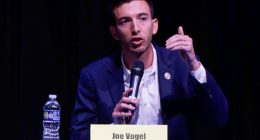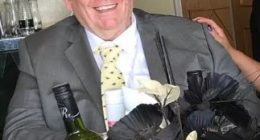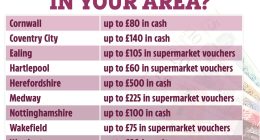
The single biggest financial beneficiary of the recent U.S. electric-vehicle startup boom is an unlikely candidate: the world’s largest exporter of oil.
The kingdom of Saudi Arabia stands to record a profit of nearly $20 billion on a $2.9 billion investment in Lucid Motors Inc., a San Francisco Bay Area electric-car maker that is set to list publicly after it completes a merger with a special-purpose acquisition company Friday. The Saudi Public Investment Fund will own over 60% of the company, which is expected to have a market capitalization of about $36 billion based on the SPAC’s current share price.
The listing represents the fruits of a well-timed 2018 investment in Lucid when it was struggling for survival. Its Saudi lifeline came thanks to Mohammed bin Salman, the crown prince who was pushing his country’s Public Investment Fund to spend unprecedented sums on startups as part of a bid to diversify the country’s wealth away from oil.
More recently, the Saudi investment in Lucid benefited from the meme stock phenomenon that has reshaped financial markets. A flood of amateur stock traders has pushed up prices of companies merging with SPACs, especially in the electric-vehicle space, as traders bet that startups will emulate Tesla Inc.’s stock market success leveraging the auto industry’s shift away from gasoline engines.
Lucid and the SPAC it is merging with, Churchill Capital Corp. IV, CCIV -5.35% gained a particularly avid following on Reddit and Twitter. After the pending merger of the two companies was reported in January, an online frenzy pushed Churchill’s stock up more than 500% by February before shares retreated significantly.
Lucid’s expected market capitalization is nearly twice the valuation of Nissan Motor Co. and about two-thirds that of Ford Motor Co. , which delivered more than 4 million cars last year. Lucid has yet to sell any cars. It plans to start production later this year.
In all, more than 23 companies making electric vehicles or batteries have struck deals to go public through SPACs in the past year. The deals have raised over $17 billion for the companies, many of which have no revenue and have won over investors with projections of rapid growth. Lucid has said it expects revenue of $22 billion in 2026.
Lucid is substantially more valuable than any of the other U.S. electric-vehicle startups that have gone public recently, and the Saudi gains are far and away the largest by total dollars. The second-most-valuable U.S. company in the sector to list recently, battery maker QuantumScape Corp. , is valued at around $9 billion. Large shareholder Volkswagen AG has logged a gain of over $1 billion on its $300 million investment in QuantumScape.
Lucid, Churchill and the Saudi Public Investment Fund declined to comment.
Lucid, formed in 2007, initially tried to make batteries before shifting its business model to making cars. For years, electric-vehicle companies weren’t en vogue among venture capitalists, and the company couldn’t find funding to build its factory.
Then Prince Mohammed embarked on a plan to sell some of the country’s state-owned oil company and plow the money into sectors including tech and electric vehicles. The Saudi fund held early talks about a possible buyout of Tesla in the summer of 2018 before later opting to take majority ownership in the much more nascent Lucid with an initial commitment of $1.3 billion. As part of the deal, Lucid committed to build a factory in Saudi Arabia, according to the company’s securities filings.
Lucid was one of the last major investments by Saudi Arabia before the 2018 murder of Saudi dissident journalist Jamal Khashoggi. Western appetite for Saudi money has remained subdued since then. Earlier this year, the U.S. declassified a report that blames Prince Mohammed for ordering the killing. He has said the killing happened on his watch but denied ordering it.
The Saudi investments in tech startups tended not to entail the levels of diligence or research that other institutional investors often bring to such deals, said Steffen Hertog, a professor at the London School of Economics who has advised the Saudi government.
This approach brought some of the largest checks ever written by a sovereign-wealth fund to Lucid and other startups. These Saudi investments “were driven a lot by personal relationships and tastes” of Prince Mohammed and his deputies rather than an institutionalized investment strategy, he said.
Officials at the Saudi fund have previously said their approach was driven by Vision 2030, the country’s plan for diversifying the economy.
Other bets by the Saudi fund included a $3.5 billion investment in ride-hailing company Uber Technologies Inc. and over $400 million in augmented-reality company Magic Leap. In the single largest move, Prince Mohammed committed $45 billion toward the SoftBank Vision Fund, the biggest check behind the largest private investment fund ever raised.
These investments haven’t fared as well as Lucid.
Shares of Uber, which went public in 2019, are worth 5% less than the price the Saudi fund paid in 2016, in what was one of the largest single investments in a startup at the time. The Nasdaq Composite Index has roughly tripled in the same period.
SHARE YOUR THOUGHTS
What do electric cars mean for the future of Saudi Arabia and its oil industry? Join the conversation below.
Magic Leap, once valued at nearly $7 billion, struggled to win over consumers with its AR glasses. Its chief executive and founder left the company last year, it cut a large chunk of its staff and multiple mutual funds that publicly report investments in the private company said its value has fallen by over 80%.
The Vision Fund struggled in 2018 and 2019, hit by high-profile embarrassments including an investment in WeWork, and investor malaise in other areas of the fund’s focus. In the past year, though, it has had huge wins from investments in Korean e-commerce giant Coupang Inc. and U.S. food-delivery company DoorDash Inc.
It is unclear how long the Saudi fund intends to hold on to its investment in Lucid. The fund is restricted from selling shares for 180 days after the deal is complete.
—Nikhil Lohade and Summer Said contributed to this article.
Write to Eliot Brown at [email protected]
Copyright ©2021 Dow Jones & Company, Inc. All Rights Reserved. 87990cbe856818d5eddac44c7b1cdeb8









